
 I am giving away a free copy of the classic book, “Objections to Calvinism As It Is” by Randolph Foster! I pray that this blesses your life.
I am giving away a free copy of the classic book, “Objections to Calvinism As It Is” by Randolph Foster! I pray that this blesses your life.
You’ll also receive in the same email two other theological books that I won’t name, just to spark your curiosity some more.😉
And lastly, you’ll also be subscribed to our free email newsletter and will receive biblical articles and great content from time to time.
CLICK HERE for a FREE Book
Calvinism, also known as Reformed Theology or the so called “Doctrines of Grace,” has had some resurgence in recent years. This has deeply disturbed and troubled me as Calvinism is a very heretical and dangerous theology that believers can be deceived into. Still, many believers have never even heard of Calvinism.For that reason, I find it necessary to post what it is that Calvinism teaches and how these false doctrines are in contradiction to the Holy Scriptures.
These are some of the major theological problems with Calvinism:
1. Calvinism denies man’s free will to obey or disobey God, which is the basis of man’s responsibility and accountability, as taught by the Bible: (Gen. 4:6-7; Deut. 11:26-28; 30:11-15, 19; Josh. 24:15; Jer. 38:20; Eze. 18:30; Acts 17:30-31);
Augustine said, “By Adam’s transgression, the freedom of’ the human will has been completely lost.”
Augustine said, “By the greatness of the first sin, we have lost the freewill to love God.”
Augustine said, “by subverting the rectitude in which he was created, he is followed with the punishment of not being able to do right” and “the freedom to abstain from sin has been lost as a punishment of sin.”
Martin Luther said that “the law demands of men what they cannot do…”
Martin Luther said, “For if man has lost his freedom, and is forced to serve sin, and cannot will good, what conclusion can more justly be drawn concerning him, than that he sins and wills evil necessarily?”
2. Calvinism denies that each individual is responsible and accountable for their own sins committed in their own life, and will not be damned for the sins of anyone else, as the Bible teaches: (Lev. 18:29; Deut. 24:16; 2 Kng. 14:6; 2 Chron. 25:4; Eze. 18:2-6; Eze. 18:20; Jer. 17:10; Matt. 16:27; Rom. 2:5-6; Rom. 14:12; 2 Cor. 5:10; 2 Cor. 11:15; 1 Pet. 1:17; Rev. 20:11-12; Rev. 22:12);
John Calvin stated, “Adam drew all his posterity with himself, by his fall, into eternal damnation.”
3. Calvinism denies that Christ died for everyone (Heb. 2:9; 2 Cor. 5:14-15; 1 Jn. 2:2), and His unlimited atonement does not make salvation automatic for anyone, but available for everyone (Jn. 3:14-17; 12:46; Acts 10:43; Rom. 10:11; Rev. 22:17), and that those for whom Christ died can still perish (Rom. 14:15; 1 Cor. 8:11; 2 Pet. 2:1); as the Bible teaches.
Custance said, “No man can be held accountable for a debt that has already been paid for on his behalf to the satisfaction of the offended party. But a double jeopardy, a duplication of indebtedness, is indeed involved if the non-elect are to be punished for sins which the Lord Jesus Christ has already endured punishment.”
Boettner said, “For God to have laid the sins of all men on Christ would mean that as regards to the lost He would be punishing their sins twice, once in Christ, and then again in them.”
Wayne Grudem said, “Reformed people argue that if Christ’s death actually paid for the sins of every person who ever lived, then there is no penalty left for anyone to pay, and it necessarily follows that all people will be saved, without exception. For God could not condemn to eternal punishment anyone whose sins are already paid for: that would be demanding double payment, and it would therefore be unjust.”
Joshua Williamson said, “If Christ died for everyone, everyone would be saved.”
4. Calvinism denies the universal benevolence or love of God, which wants all sinners to repent and be saved as taught by the Bible: (Eze. 33:11; John 3:14-17; 2 Pet. 3:19);
John Calvin said, “not only was the destruction of the ungodly foreknown, but the ungodly themselves have been created for the specific purpose of perishing.”
John Calvin said, “First, the eternal predestination of God, by which before the fall of Adam He decreed what should take place concerning the whole human race and every individual, was fixed and determined.”
John Calvin said, “At this point in particular the flesh rages when it hears that the predestination to death of those who perish is referred to the will of God.”
Alan Kurschner said, “God desires that his sheep are saved. God desires that his people are saved. He does not desire that every single individual who has ever lived, live in glory with him forever. If that were the case, we have an incompetent, unhappy, and impotent God.”
Matthew McMahon said, “I reject anything which makes God a cosmic bell-hop tending to the commands and demands of sinful men as another gospel. I reject anything which removes God’s sovereignty to place man as the Sovereign as another gospel. I reject anything which denies the sovereign decrees of God and His electing grace to put salvation into the hands of sinful men as another gospel. I reject anything which denies man’s total depravity and exalts his fictitious free will as another gospel. I reject anything which places the perseverance of man to glory in the incapable hands of a sinful man as another gospel. I reject anything which endeavors to treat God as the great Grandfather in the sky beckoning and pleading with man to be saved as changing the true God into a pitiable wimp.”
Erwin Lutzer said, “The revealed will was that all men be saved, but the hidden will was that the greater part of mankind be damned.”
John Calvin said, “His secret counsel, by which He determined to convert none but His elect.”
John MacArthur, comments: “His patience is not so He can save all of them, but so that He can receive all of His own…”
5. Calvinism denies the conditional security of believers or the possibility of falling away from the faith as taught by the Bible (Matt. 24:13; Jn. 15:6; Acts 11:23; Acts 13:43; Acts 14:22; Rom. 8:13; Rom. 11:20-21; 1 Cor. 9:27; Heb. 2:1-3; Heb. 10:26-31; 2 Pet. 2:20-21);
Martin Luther said, “Be a sinner and sin boldly… No sin can separate us from Him, even if we were to kill or commit adultery thousands of times each day.”
Westminster Confession of Faith said, “They whom God hath accepted in His Beloved, effectually called and sanctified by his Spirit, can neither totally nor finally fall away from the state of grace; but shall certainly persevere therein to the end, and be eternally saved.”
6. Calvinism denies man’s role, responsibility, and choice to cooperate with God in regeneration or in the changing of his heart as taught by the Bible (Deut. 10:16; Eze. 18:30-32; Ps. 78:8; Ps. 95:8; Heb. 3:15; Act 7:51; 17:30-31; Jas. 4:8; Col. 3:9-10; Eph. 4:22, 24; 1 Tim. 4:16);
Martin Luther said, “I say that man… when he is re-created does and endeavors nothing towards his perseverance in that kingdom; but the Spirit alone works both blessings in us, regenerating us, and preserving us when regenerate, without ourselves…”
A. W. Pink said, “The new birth is solely the work of God the Spirit and man has no part in it.”
7. Calvinism denies that there is deliverance available from all sin in Jesus Christ, or the possibility of overcoming sin in this life by the grace of God as taught by the Bible (Matt. 1:21; Jn. 8:36; Rom. 6:18, 20, 22; 8:2; 1 Cor. 10:13; 1 Thes. 3:13; 1 Thes. 5:23; Titus 2:11-12; Jude 1:24; 1 Tim. 6:14; 1 Jn. 1:9; 3:9).
The Westminster Catechism says, “No man is able, either of himself, or by any grace received in this life, perfectly to keep the commandments of God; but does daily break them in word, thought, and deed.”
8. Calvinism denies that man’s choice to repent of all his sins is a necessary condition of forgiveness, but rather teaches that justification by grace through faith is nothing more than justification in sin and impenitence (Antinomianism), as opposed to what the Bible teaches: (Isa. 55:7; Eze. 18:30; Prov. 28:13; Matt. 7:21; 19:17; Lk. 13:3; Acts 8:22; Rom. 2:5; 6:1-2; Titus 2:1112; Jude 1:4; Rev. 22:14).
Charles Spurgeon said, “You must not expect that you will be perfect in ‘repentance’ before you are saved. No Christian can be perfect. “Repentance” is a grace. Some people preach it as a condition of salvation. Condition of nonsense! There are no conditions of salvation. God gives the salvation himself…”
Harry Ironside said, “The Gospel is not a call to repentance, or to amendment of our ways, to make restitution for past sins, or to promise to do better in the future. These things are proper in their place, but they do not constitute the Gospel; for the Gospel is not good advice to be obeyed, it is good news to be believed. Do not make the mistake then of thinking that the Gospel is a call to duty or a call to reformation, a call to better your condition, to behave yourself in a more perfect way than you have been doing in the past … Nor is the Gospel a demand that you give up the world, that you give up your sins, that you break off bad habits, and try to cultivate good ones. You may do all these things, and yet never believe the Gospel and consequently never be saved at all.”
9. Calvinism denies that God is not the author of sin, nor the sovereign cause of its entrance into the world, as taught by the Bible (Gen. 1:31; 6:5-6; 1 Sam. 15:22; Jer. 19:5, 32:35; Isa. 5:4; Zeph. 3:5; Ecc. 7:29; Matt. 6:10; Lk. 7:30; 1 Cor. 14:33; Heb. 1:9, James 1:13).
Martin Luther said, “Since, therefore, God moves and does all in all, He necessarily moves and does all in Satan and the wicked man…”
Martin Luther said, “God worketh all things in all men even wickedness in the wicked…”
John Calvin said, “Whatever things are done wrongly and unjustly by man, these very things are the right and just works of God.”
See also the article, “Is God the Author of Sin?“
There are many other orthodox doctrines which are taught in the Scriptures and which were held by all of the Early Church which are denied by Augustinian and Reformed Theology, but the above is sufficient for this article.
As much as Calvinism claims to be orthodox, its doctrines are utterly opposed to the doctrines of the Early Church Fathers before Augustine, and they have more in common with the heretical teachings of the Gnostics and Manicheans.
See the article, “Did He Corrupt The Church With Gnostic Doctrine?“
Sadly, many Calvinist groups function as a cult today, claiming exclusively that Calvinism is Christianity, that their doctrine of T.U.L.I.P. is the gospel itself, and that anyone who disagrees with their doctrine is a “heretic,” “false teacher,” or “false convert.” They are quick to break fellowship with, and falsely accuse, any Christian that contradicts their own theology.
I have always found it interesting that these groups will hail John Calvin as a hero, but will label Charles Finney a heretic. Charles Finney was America’s greatest revivalist, who lead a quarter of a million people to the Lord. The vast majority of his converts stayed in the faith until their dying day, unlike other evangelists like D. L. Moody or Billy Graham, who’s converts mostly fell away. John Calvin on the other hand had excommunicated and even killed countless individuals. Calvinists overlook this and often seek to justify it, while they are quick to condemn Finney because he used “altar calls.” I can supply story after story of Finney winning sinners to Christ, but Calvinists have been unable to provide for me even a single story of John Calvin ever personally leading a sinner to Jesus. There are plenty of stories of John Calvin burning sinners at the stake, but not a single one of him leading souls to Christ like Charles Finney did. Yet, they exalt Calvin as a hero and criticize Finney for calling sinners to repentance at the altar.
See also the article, “The Secret of Success In The Ministry of Charles G. Finney by Gordon C. Olson“
God Bless,
Jesse Morrell
http://www.OpenAirOutreach.com
To view the Christian books we have available: Click Here
SEE ALSO: Reformed Theology or Deformed Theology? Doctrines of Grace or Disgrace? Jesse Morrell
FREE BOOK
 I am giving away a free copy of the classic book, “Objections to Calvinism As It Is” by Randolph Foster! I pray that this blesses your life.
I am giving away a free copy of the classic book, “Objections to Calvinism As It Is” by Randolph Foster! I pray that this blesses your life.
You’ll also receive in the same email two other theological books that I won’t name, just to spark your curiosity some more.😉
And lastly, you’ll also be subscribed to our free email newsletter and will receive biblical articles and great content from time to time.
CLICK HERE for a FREE Book



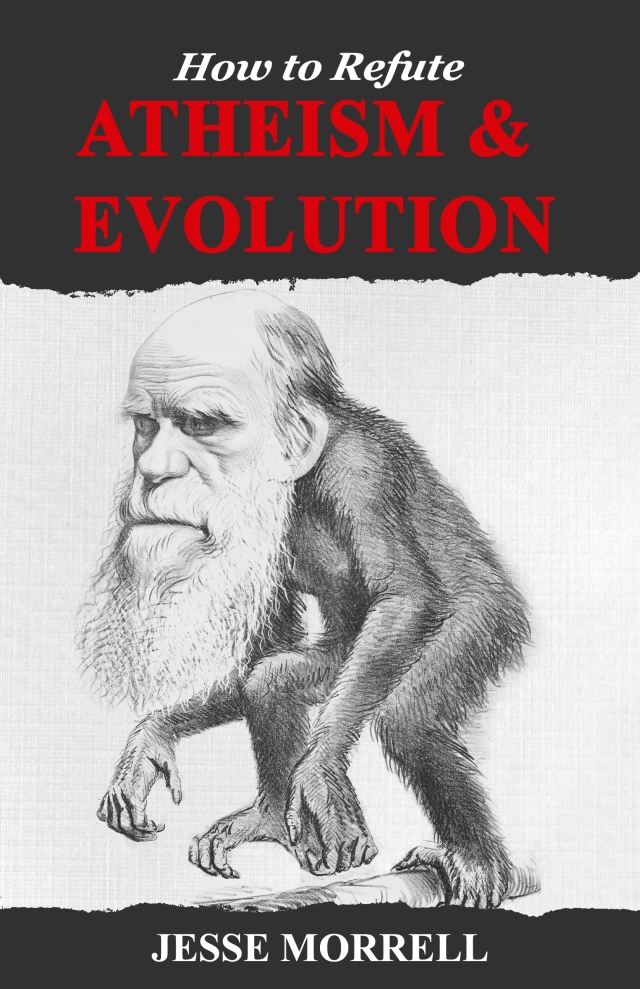

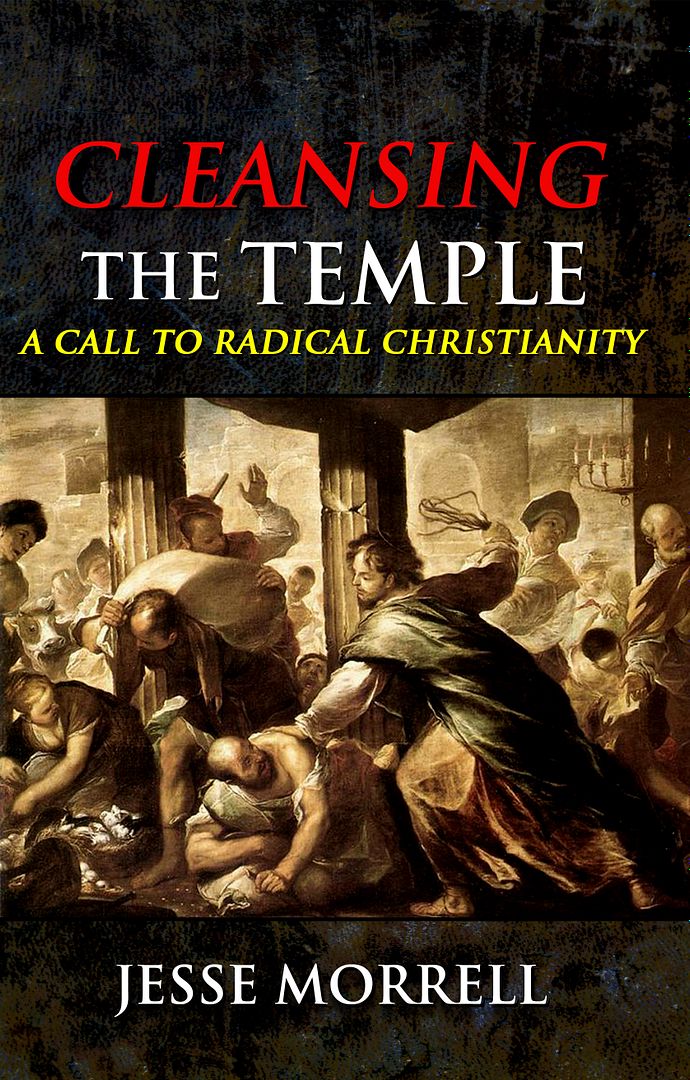
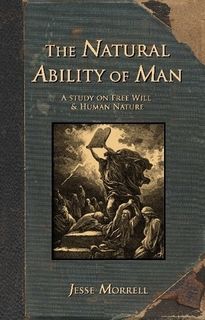
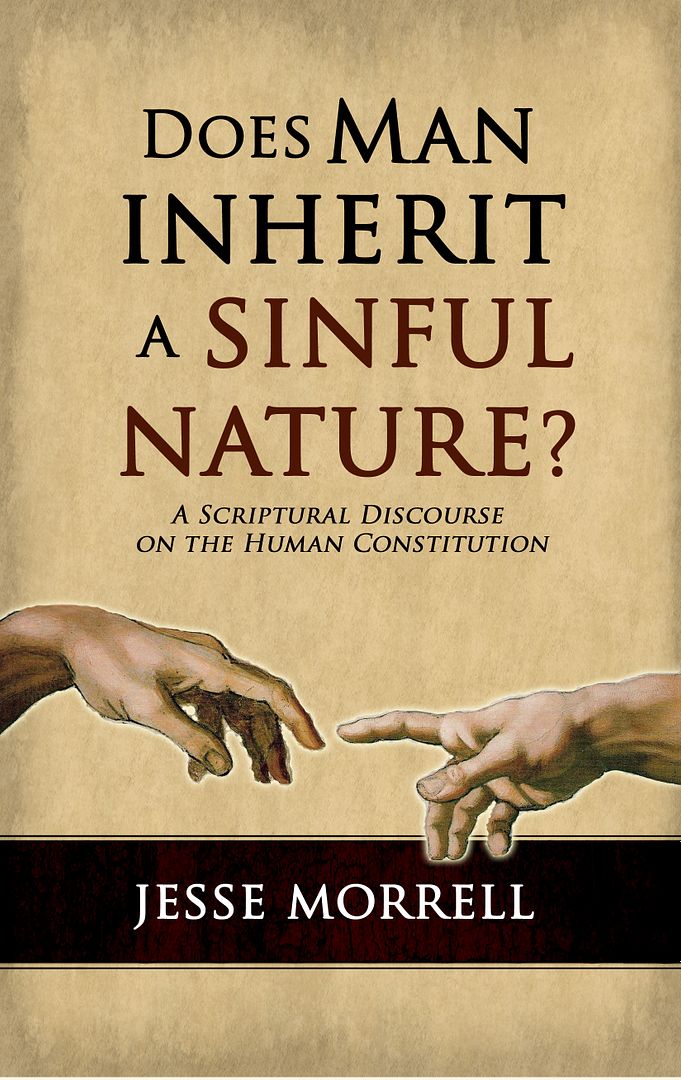
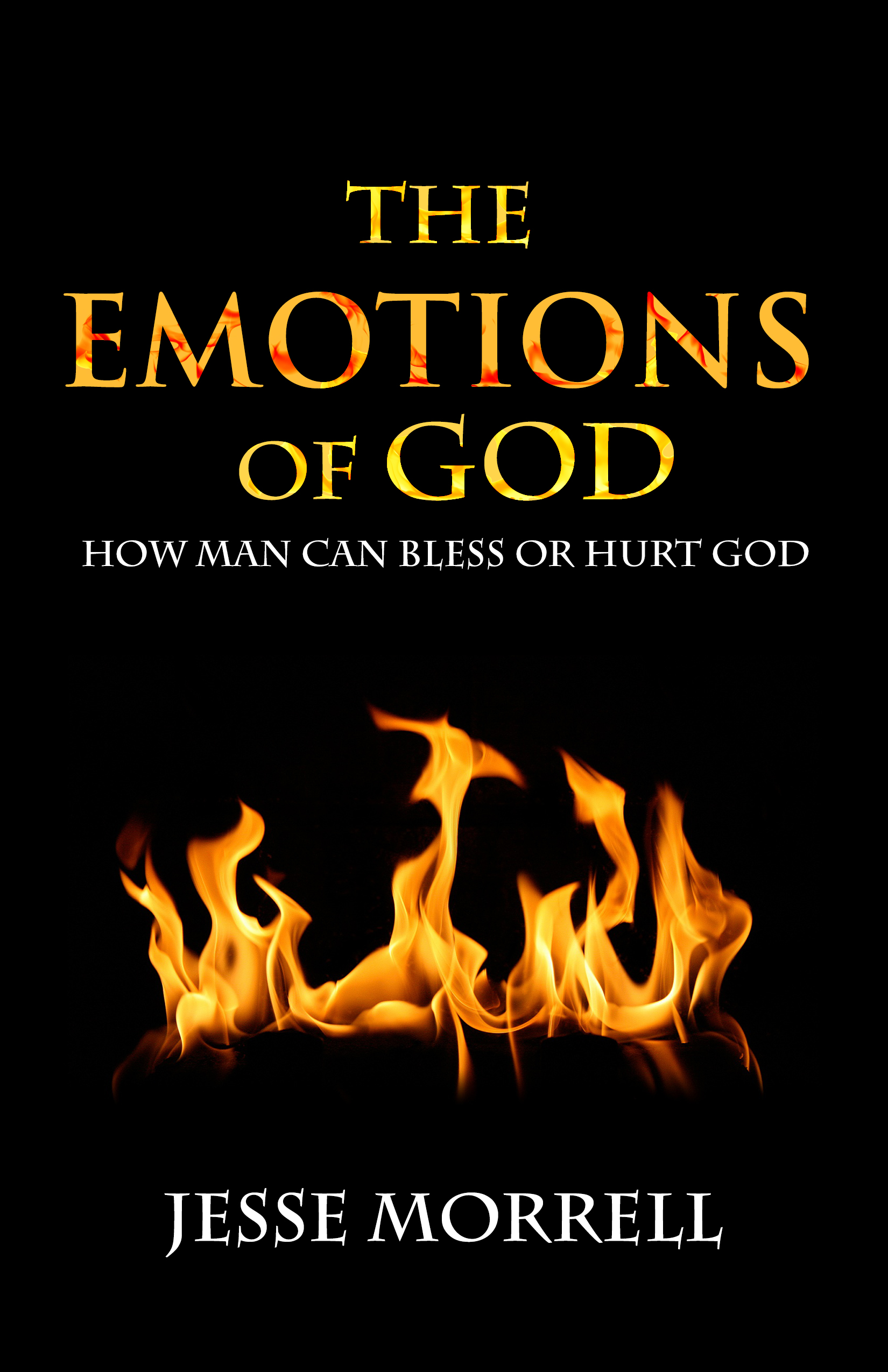
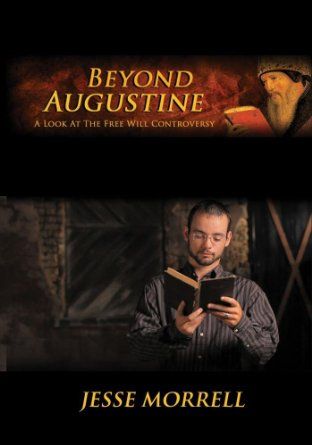






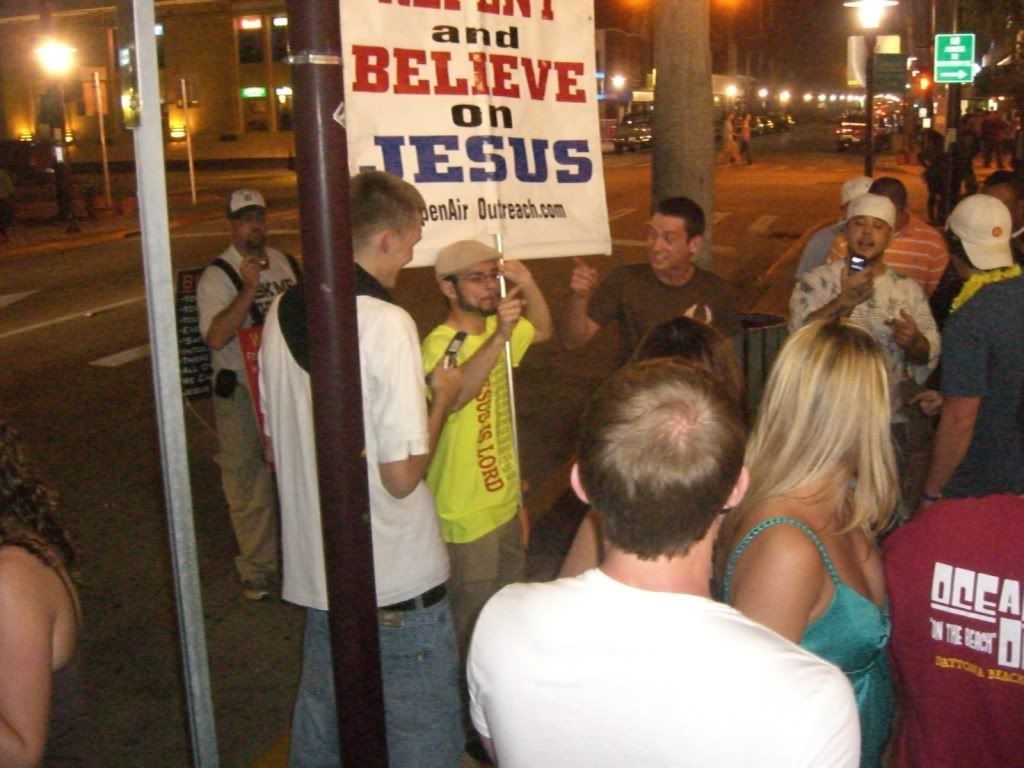


Calvinism is dangerous in its effect for many reasons. First of all, if you cannot help but to live in perpetual sin, why even try to be perfect? Second, if God doesn’t want everyone to be saved, why should you? Third, if Jesus didn’t die for everyone, you cannot tell people on the street that Jesus died for them. Fourth, if God doesn’t want everyone to repent, you cannot tell sinners that God wants them to repent. Fifth, if sinners had no free will but were forced by their nature to sin, how could you truly blame them for their sin and bring about the conviction necessary for their salvation? Sixth, how can you justify God in apologetic to the world when your theology makes Him the eternal author of all sin? And seventh, if salvation is not man’s free will choice but is predestined and monergistic, then the salvation of others does not truly depend upon you – making void the great commission. In fact, if regeneration were constitutional because free will was lost by original sin, and not a moral change, then God could regenerate a sinner by the snap of his finger with absolutely no need of the gospel itself.
The simply fact that Calvinism denies essentials of the gospel, like the unlimited atonement of Christ and God’s will for all to be saved, makes it’s doctrines heretical. Calvinists say that Calvinism is the gospel itself, but in reality, Calvinism is a denial of the gospel itself.
I met a Calvinist who told me that she didn’t want everyone to repent and be saved because, after all, God doesn’t. So Calvinism results in men not loving their neighbor as themselves. Thus this tradition of men makes void the commandment of God.
perhaps the best points ive heard yet. I grew up in a heretical southern baptist “church”……very good discernment you have….
its strange how men will attend a theological “cemetary” school, and get a degree in “divinity” or theology, and know absolutely NOTHING about the oracles of God. They rely on their sheep clothing to manipulate Scripture into an idol religion, custom made for the ears of those that seek ointment for the itch…..once saved always saved is a lie from hell. What did JESUS say? what did the PROPHETS say? what did JOHN, PETER, and PAUL say? men who were completely filled and controlled by the Holy Spirit, as they GAVE THEMSELVES AS SLAVES TO Christ.
Your comment is proof positive that seminaries and schooling are vital to our walk with Him. Without it, un-biblical and flawed teachings abound just like what you posted and what this entire website professes. I am a 0 point Calvinist but consider Calvinist closer to the truth than anything taught on the website.
Just try to show this to a baptist, calvinist preacher, and watch as they try to explain it away, making themselves the people who John was speaking of to watch and avoid…
1 John 2
King James Version (KJV)
2 My little children, these things write I unto you, that ye sin not. And if any man sin, we have an advocate with the Father, Jesus Christ the righteous:2 And he is the propitiation for our sins: and not for ours only, but also for the sins of the whole world.3 And hereby we do know that we know him, if we keep his commandments.4 He that saith, I know him, and keepeth not his commandments, is a liar, and the truth is not in him.5 But whoso keepeth his word, in him verily is the love of God perfected: hereby know we that we are in him.6 He that saith he abideth in him ought himself also so to walk, even as he walked.7 Brethren, I write no new commandment unto you, but an old commandment which ye had from the beginning. The old commandment is the word which ye have heard from the beginning.8 Again, a new commandment I write unto you, which thing is true in him and in you: because the darkness is past, and the true light now shineth.9 He that saith he is in the light, and hateth his brother, is in darkness even until now.
10 He that loveth his brother abideth in the light, and there is none occasion of stumbling in him.11 But he that hateth his brother is in darkness, and walketh in darkness, and knoweth not whither he goeth, because that darkness hath blinded his eyes.12 I write unto you, little children, because your sins are forgiven you for his name’s sake.13 I write unto you, fathers, because ye have known him that is from the beginning. I write unto you, young men, because ye have overcome the wicked one. I write unto you, little children, because ye have known the Father.14 I have written unto you, fathers, because ye have known him that is from the beginning. I have written unto you, young men, because ye are strong, and the word of God abideth in you, and ye have overcome the wicked one.15 Love not the world, neither the things that are in the world. If any man love the world, the love of the Father is not in him.16 For all that is in the world, the lust of the flesh, and the lust of the eyes, and the pride of life, is not of the Father, but is of the world.17 And the world passeth away, and the lust thereof: but he that doeth the will of God abideth for ever.18 Little children, it is the last time: and as ye have heard that antichrist shall come, even now are there many antichrists; whereby we know that it is the last time.
19 They went out from us, but they were not of us; for if they had been of us, they would no doubt have continued with us: but they went out, that they might be made manifest that they were not all of us.20 But ye have an unction from the Holy One, and ye know all things.21 I have not written unto you because ye know not the truth, but because ye know it, and that no lie is of the truth.22 Who is a liar but he that denieth that Jesus is the Christ? He is antichrist, that denieth the Father and the Son 23 Whosoever denieth the Son, the same hath not the Father: he that acknowledgeth the Son hath the Father also.24 Let that therefore abide in you, which ye have heard from the beginning. If that which ye have heard from the beginning shall remain in you, ye also shall continue in the Son, and in the Father.25 And this is the promise that he hath promised us, even eternal life. 26 These things have I written unto you concerning them that seduce you.
I agree with all you say. Calvin followers twist scripture in order to fit it in with filtered doctrine. All scripture has to be forced into the shape ordained by Calvin the Protestant Pope as he once was know by.
The doctrine that God forgives us without repentance unto holiness or while we continue in our sinning, which is nothing more than a license to sin, is certainly not “good news” to the universe as it completely endangers and threatens the public’s well-being. Sin is a violation of rights of the public and therefore forgiveness without repentance cannot be good news to the public.
Also, the doctrine of a limited atonement is only “good news” to a selfish mind who believes he is part of the elect. But if the atonement was limited and not for all, then there is no good news for “every creature.”
Thus, Calvinism is not the gospel as they allege, rather, Calvinism is a denial of the gospel.
How does Ezekiel 33:6 make sense in light of a Calvinist view?
But if the watchman see the sword come, and blow not the trumpet, and the people be not warned; if the sword come, and take any person from among them, he is taken away in his iniquity; but his blood will I require at the watchman’s hand.
Why would the watchman need to go warn the person and so what if he did, if that person being warned had no choice in if he would remain in sin or not? Doesn’t the statement that once the warning is given, the blood would be on the person’s own hands if they did not repent and not on the hands of the watchman disprove Calvinistic thought?
Calvinism grieves my heart and it disturbs me to see so many Calvinistic posts on Facebook and Calvinistic materials and preachers being so popular in our day.
Scriptural problems I have with Calvinism:
1. Calvinism says that God decreed all sin when the Bible says sin breaks the heart of God and wills holiness and obedience from His subjects.
2. Calvinism says that men are under the wrath of God for the sin of Adam when the Bible says that the son does not bear the iniquity of the father and we will all give an account for our own deeds.
3. Calvinism says that man’s free will was lost by Adam’s original sin when the Bible never says this but instead continues to appeal to man’s free moral agency after Adam’s fall.
4. Calvinism says that all men inherit a sinful nature from Adam when the Bible never even says that Adam’s nature was sinful but instead asserts that God forms our nature in the womb.
5. Calvinism says that all events are the eternal will of God when the Bible represents God as grieved, disappointed, and surprised over many events that have occurred.
6. Calvinism says that God has irresistibly decreed all events from eternity past, when the Bible says that God has canceled and reversed some of His own prophecies and teaches that the future is not yet entirely fixed and settled.
7. Calvinism says that God has given man a moral law which He is incapable of keeping when the Bible says that God is just, never allows us to be tempted above our ability, and only obligates us to love Him with all of our ability.
8. Calvinism says that Jesus Christ came and took our punishment when the Bible says that our punishment is eternal hell.
9. Calvinism says that Jesus Christ came and paid our debt when the Bible says that God forgives us our debt.
10. Calvinism says that Jesus Christ took the punishment of our sins when the Bible says that God forgives us our sins.
11. Calvinism says that Jesus Christ came and took the wrath of God when the Bible says that God still has wrath after the atonement, that sinners are not saved from God’s wrath until conversion, that the atonement was instead a justification of His mercy, and that believers who return to their sins return to the wrath of God.
12. Calvinism says that Jesus Christ became sinful and guilty on the cross when the Bible says He died the just for the unjust and offered Himself without spot or blemish to God.
13. Calvinism says that those for whom Christ died can never perish when the Bible warns that those for whom Christ died can perish.
14. Calvinism says that Christ only died for a few elect when the Bible says that Jesus died for the world and all men.
15. Calvinism says that God wants most sinners to remain in their sins and die and go to hell, to somehow glorify His justice, when the Bible says God wants all men to repent and be saved.
16. Calvinism says that men cannot repent and believe when the Bible commands men to repent and believe and blames them if they do not.
17. Calvinism says that men cannot repent and believe because they are born spiritually dead because of Adam when the Bible says that men are dead or alienated from God because of their own trespasses and sins and says the prodigal son was able to return to the father even though he was dead to the father.
18. Calvinism says that God predestined individuals for heaven or hell when the Bible says that God has chosen to offer salvation to the Jews and the Gentiles, grafting in some and cutting off others based upon their faith or unbelief.
19. Calvinism says that God predestined some for Heaven and most for hell according to the pleasure of His will, when the Bible says that God sent Jesus to die for all, commands all men to repent and believe, is drawing all men unto Himself, is not willing that any should perish, and takes no pleasure in the death of the wicked.
20. Calvinism says that the righteousness of Christ is imputed to believers when the Bible says that our faith is imputed as righteousness.
21. Calvinism says that God doesn’t see believers if they sin, but see’s imputed righteousness instead, when the Bible says God is omniscient and nothing is hide from His eyes.
22. Calvinism says that true believers will persevere unto the end when the Bible exhorts believers to persevere, warns of damnation if they do not, and speaks of some who have departed from the faith.
My list can go on and on but these are just some of the major points
Shalom! God bless you!
I want this book. I am from Romania and in Romania are many calvinists. I am not calvinist and I can’t stand that demonic doctrine. Also I descovered that calvinists are very agressive. I don’t understand how this people preach that God is a calvinist when the Bible is very clear. Well…when you can’t accept the truth of God, you’ll twist it to conform to your self ideas about who God is. Please, send me this book to read it and to continue to destroy the calvinism with the PURE Word of God. Thank you very much, brother! Keep preaching.
Please keep in mind that St. Augustine said much more than you mention in this article. He is one of the go-to Church Fathers used by Protestants to suggest that the early Church was actually Protestant in doctrine and practices. St. Augustine, however, is absolutely orthodox in his Catholic teaching. These comments are being seen in isolation and do not, by any means, represent his fully fleshed out writings.